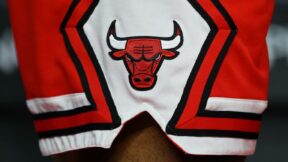5 questions Falcons must answer after Super Bowl LI collapse

The Atlanta Falcons had a 25-point lead and needed to navigate only 17-plus minutes in order defeat the New England Patriots and win Super Bowl LI. And given the way the game had gone to that point, fans in the ATL had already begun celebrating.
But fate had a different plan and suddenly the Falcons found themselves on the wrong side of history.
The Patriots would go on to score 31 unanswered points, including a game-winning touchdown courtesy of running back James White in overtime. The Falcons were understandably crushed.
How did they snatch defeat from the jaws of victory? Well, here are five questions they must address that will answer exactly that.
5. How were two opportunities to score completely blown?
On several occasions, Atlanta was set up with prime field position and came away with absolutely nothing.
Leading 28-9 with roughly 2:00 to go in the third quarter, the Patriots attempted an onside kick but were penalized for an illegal touch. The Falcons started with the ball at the New England 41 but were promptly called for holding, negating a nine-yard pass. An incomplete pass and a sack later, the Falcons were forced to punt.
Later in the game, the Falcons had pushed the ball deep into Patriots territory thanks to a brilliant reception by Julio Jones. But instead of coming away with an easy Matt Bryant field goal, a series of bad play calls — something we’ll dig into deeper in a moment — left Atlanta out of their kicker’s range.
If the Falcons were able to score on either of those drives, they would be holding their own victory parade. Instead, questionable playcalling and a lack of discipline will have to be answered for.
4. Why did Eric Weems bring the final kickoff out of the end zone?
After the Patriots tied the game at 28, the Falcons had one final opportunity to win the game with slightly less than 1:00 remaining.
With no timeouts thanks in large part to a poor challenge, which we’ll also address shortly, Atlanta had no room for error. Unfortunately, one of the very first things they did was commit an error.
Patriots kicker Stephen Gostkowski boomed the kickoff to the goal line, which was fielded just on the other side by Falcons return man Eric Weems. But instead of downing the ball in the end zone and taking the touchback, Weems decided he wanted to be a hero. He slowly tip-toed his way out of the end zone and then bee-lined for the sideline when he realized he had nowhere to run.
Rather than starting their final drive at the 25-yard line with 57 seconds remaining, Weems’ decision landed them on the 11-yard line and cost them an additional five seconds (or what amounts to one play in the NFL).
The decision to bring that final kickoff out of the end zone isn’t what cost Atlanta their first Super Bowl title, but it certainly did absolutely nothing to help them win the game. Instead, it cost them one full play and 14 yards of field position.
Who knows how things would have gone had Matt Ryan had one extra timeout, 14 more yards and one extra play to work with.
3. Why was a challenge/timeout wasted on Julian Edelman’s catch?
Leading 28-20 and with the Patriots driving, the pressure was mounting on the Falcons, and inexperience seems to have cost them.
On a first-and-10, Tom Brady launched a ball over the middle of the field that was tipped and redirected by a Falcons defender. In the melee, wide receiver Julian Edelman dove forward and miraculously hauled in an improbable reception (video here).
As acrobatic and unlikely as the catch was, one glance at the replay showed the ball did not touch the ground or come loose. It was a catch — a devastating, back-breaking catch. But instead of just moving onto the next play, Falcons head coach Dan Quinn threw caution to the wind and tossed out his final challenge flag.
Not surprisingly, the Falcons lost the challenge and, subsequently, their final timeout. The Patriots would then go on to tie the game at 28, leaving the league’s most high-powered offense with 57 seconds remaining to get into field goal range.
Coupled with a horrendous decision to take the ensuing kickoff out of the end zone, Matt Ryan and the offense had no timeouts to work with. As a result, each side of the field was completely taken away and they could muster only 16 yards before they were forced to punt and the game was sent into overtime.
It was the last time the offense would touch the football.
2. Why was the run abandoned with a big lead?
What in the world was Atlanta offensive coordinator Kyle Shanahan thinking? No, really… what was he thinking?
The Falcons had a 28-3 lead in the Super Bowl, had been eating up large chunks of yardage on the ground and only needed to repeat that in order to win their first championship in franchise history. Instead, they opted to pass in situations that didn’t call for it, allowing the clock to be stopped and the Patriots to have not only more time to put points on the board, but an increased number of opportunities.
After New England made it 28-9, Atlanta ran four plays — three passes and one run. On the run, they were called for holding. Later, Ryan was sacked. In total, they burned only 2:15 off the clock and lost 15 yards.
After New England kicked a field goal to make it 28-12, Atlanta ran three plays — two runs and a pass. The two runs gained them nine yards, but on a third-and-1, they opted to pass the ball. Matt Ryan was sacked once again, he fumbled and the Patriots recovered. The series took only 1:25 off the clock and set New England up at the 25.
Following New England’s touchdown and 2-point conversion to make it 28-20, Atlanta ran seven plays — five passes and two runs. Unfortunately for the Falcons, this is where they lost the game. After moving the ball to the Patriots 22 and putting themselves well within field goal range, Atlanta ran the ball only once. Matt Ryan was sacked (notice the theme here?) for a loss of 12 and an offensive holding cost them another 10 yards. One final desperation pass failed to connect and the Falcons were forced to punt.
The Patriots went on to tie the game at 28, and with roughly a minute remaining, the Falcons were without timeouts. Once again, they couldn’t pass their way out of trouble and the game went into overtime. They would not see the ball again.
1. Why did the defense go soft in the second half?
In the aftermath of Atlanta’s collapse in Super Bowl LI, Kyle Shanahan has been the scapegoat. And while that is justifiable given what we’ve already outlined here, a lot more than poor offensive play-calling went into the epic loss.
While most will point the finger at Shanahan and question his decision-making, defensive coordinator Richard Smith deserves his fair share of the blame as well.
Early in the game, the Falcons were mixing their coverages, disguising their blitzes and finding various ways to create pressure and confusion. Even early in the third quarter, they kept that ball rolling. And then suddenly, for no apparent reason, they defaulted to a predominately prevent defense.
The argument can be made that those decisions were a product of a skewed time of possession and completely exhausted defenders, but the counter-point to that is the style of defense they were playing. They couldn’t get the Patriots off the field and thus, the defenders were gassed out and had their backs against the wall.
Why the Falcons became significantly less aggressive as the game went on is something they’ll have to answer for, especially when you consider New England’s final five drives all resulted in a score and all but one were of 70 yards or more (their one-play drive at the end of the fourth quarter not included).
At the end of the day, the Falcons got away from the correct defensive blueprint and it cost them dearly.







